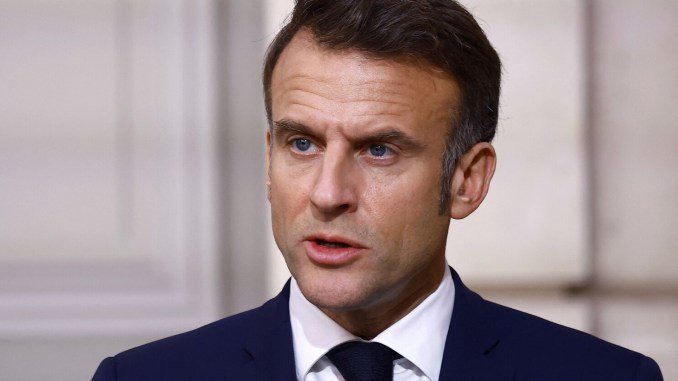
Speaking at a policy forum in Paris, Macron defended France’s military and economic presence on the continent, saying:🗣️ “If we leave African countries to manage on their own, now is not the time. Africa remains the least developed continent, and history shows we have a role to play in supporting its growth. A complete withdrawal could halt progress. There is still much work for us to do in Africa, and we believe they are not fully ready to thrive without our involvement.”
Across social media platforms, African citizens, activists, scholars, and politicians have responded with outrage, accusing Macron of undermining Africa’s sovereignty and agency.
African Leaders and Citizens Respond
In Nigeria, human rights activist Aisha Yesufu blasted Macron’s remarks as “deeply insulting” and reflective of “a colonial mindset disguised as development assistance.”
“Who asked Macron to be Africa’s babysitter?” she wrote on X (formerly Twitter). “African countries are not children. They are nations with histories, struggles, and dreams that they are capable of pursuing without condescension.”
In Senegal, opposition MP Mamadou Ndiaye labelled Macron’s comments “a slap in the face to every African who has worked for independence, democracy, and self-reliance.”
“Statements like these are why many of our youth are rejecting Francophone influence altogether,” Ndiaye added, referring to growing anti-French sentiment in West Africa.
Social Media Mobilisation
The hashtag #AfricaCanManage trended across the continent following Macron’s remarks, with thousands of users posting examples of African innovation, leadership, and self-determination—from Rwanda’s health system to Kenya’s fintech boom.
One user in Ghana posted: “Macron’s tone is exactly why we must press harder for pan-African solutions. Africa doesn’t need guardians—it needs partnerships based on equality and respect.”
A Pattern of Discontent
A Shifting Landscape
Meanwhile, many African countries are deepening ties with non-traditional partners such as China, Russia, and Turkey, who offer alternatives to France’s historically dominant role. Regional blocs like ECOWAS and the African Union have also been more assertive in charting independent paths for peace, trade, and development.
“Africa’s future will not be dictated from Paris or any other Western capital,” said Kenyan political commentator Wanjiku Muriuki. “Macron should focus on fixing France’s domestic issues instead of lecturing an entire continent.”
As the diplomatic fallout grows, it is clear that Macron’s words have touched a nerve, reigniting a pan-African call for respect, dignity, and self-determination in the 21st century.
Because yes, fellow Africans—can you believe it? The time for condescending colonial echoes has long passed. Africa is not waiting to be managed. It is rising to manage itself.
